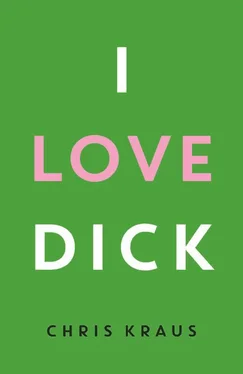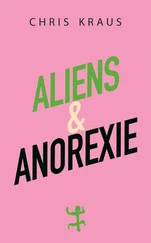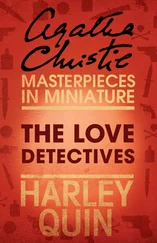“It is 1989 or 1990” when the book begins. “George Herbert Walker Bush is President of the United States and the Gulf War has just begun in Saudi Arabia” (16). Jerome Shafir and Sylvie Green (the Sylvère and Chris of I Love Dick ) are traveling through the former Soviet Bloc, “with the specious goal”—the book jacket tells us—“of adopting a Romanian orphan.” But throughout and around this frame tale, other stories and histories unfold. Jerome’s past as a “hidden child” of World War II—one of the Jewish children protected by Gentiles during the deportation (itself the hidden shadow story to France’s “official” World War II resistancialist history) haunts the story and the couple. “You’ll write a book,” Sylvie would have told Jerome, “about the War. You’ll call it The Anthropology of Unhappiness ” (33). Interconnected with that tragic personal and sociopolitical history is the unfolding present of the Romanian Revolution, which Jerome and Sylvie watch on television, and then experience firsthand as they drive through the impoverished East. And there is the story of the couple itself—Sylvie’s abortions, Jerome’s “other” family (his ex-wife and daughter), the realpolitik of academe and the art world, the punk past, and post I Love Dick future.
Animated by what Gary Indiana calls a “complex and terrifyingly nimble, restless intelligence,” Torpor —like I Love Dick —deftly interweaves the personal with the political, in such a way that none of us is let off the hook. Which is not to say that the book is lugubrious or grim. Jerome and Sylvie, the book tells us, “have become a parody of themselves, a pair of clowns. They are Bouvard and Pecuchet, Burns and Allen, Mercier and Camier” (47). And just as Beckett’s most stunning humor “derives from his description of torturous relationships” (Rosen 208), Kraus’ humor frequently attaches to the travails of this middle-aged childless couple. There’s a lot of comedy—particularly at the beginning—and (as in I Love Dick ) part of the book’s power is the way that that comedy gets refracted into some future hypothesized space where a great deal is at stake.
Torpor is a great companion piece to I Love Dick —a way of looping back to a moment before the end of the novel you hold in your hands and an elucidation of the allusions you find here. The story of Félix and Josephine, “French Theory’s Sid and Nancy,” is elaborated and played off against the story of Jerome and Sylvie. The connections between Continental Theory and the ’80s art world are teased out, and the way the Holocaust haunts both French Theory and belles lettres is given more explicit shape and dimension. “And don’t you think the most important question is How does evil happen? ” Kraus writes in Dick . In the first novel, that question emerges late in the text, as Chris describes the Coca Cola strike in Latin America and writes to Dick about her trip to Guatemala. Here, it emerges ruthlessly early, as the narrator juxtaposes factual information about Romania against the sometimes comic sensibilities of a “torturous relationship.”
Like I Love Dick, Torpor is beautifully written. Kraus has a way of ending paragraphs, shifting down into a statement so succinct it causes me to pause every time.
“In the months before she left Jerome,” Kraus writes, “she’d started writing love letters to a man who didn’t love her. In L.A. she continues writing to this man, and then she just continues writing” (280–281). Torpor confirms the promise of I Love Dick in a way that few prequels/sequels manage to do. If, like me, you find you love Chris—keep reading.
Works Cited
—D’Adesky, Anne-Christine. “ I Love Dick (Book Reviews).” The Nation . June 1, 1998. —Guattari, Félix. Chaosophy . New York: Semiotext(e), 1995.
—Hebdige, Dick. Hiding in the Light . London, Routledge, 1989.
—Intra, Giovanni. “A Fusion of Gossip and Theory.” artnet.comMagazine . November 13, 1997. Accessed April 30, 2006: http://www.artnet.com/magazine_pre2000/index/intra/intra11–13-97.asp
—Kraus, Chris. Aliens & Anorexia . New York: Semiotext(e), 2000.
—Kraus, Chris. I Love Dick . New York: Semiotext(e), 1997.
—Kraus, Chris. Torpor . Los Angeles: Semiotext(e), 2006.
—Kristeva, Julia. The Kristeva Reader . Ed. Toril Moi. New York: Columbia UP, 1986.
—de Laclos, Pierre. Les Liasons Dangereuse . New York: Doublday, 1998.
—Rosen, Steven J. Samuel Beckett and the Pessimistic Tradition. New Jersey: Rutgers UP, 1976.
—Sartre, Jean Paul. Nausea . Trans. Lloyd Alexander. New York: New Direction, 1964.
—Sedgwick, Eve Kosofsky. Between Men . New York: Columbia UP, 1985.
CHRIS KRAUSis the author of the novels Aliens and Anorexia, I Love Dick , and Summer of Hate as well as Video Green: Los Angeles Art and the Triumph of Nothingness and Where Art Belongs . A Professor of Writing at the European Graduate School, she writes for various magazines and lives in Los Angeles.
“I know there was a time before I read Chris Kraus’s I Love Dick (in fact, that time was only five years ago), but it’s hard to imagine; some works of art do this to you. They tear down so many assumptions about what the form can handle (in this case, what the form of the novel can handle) that there is no way to re-create your mind before your encounter with them”
—Sheila Heti,
The Believer
“For years before I read it, I kept hearing about Chris Kraus’s I Love Dick . I mainly heard about it from smart women who liked to talk about their feelings… Then I read it. I was nearly two decades late to the party— I Love Dick came out in 1997—but I loved the party anyway. I was finally part of it, and it made me feel even more part of it—part of something —to have men making asinine comments on the 4 train, pointing at the cover: Good to know what you like! I knew I was holding white-hot text in my hands, written by a woman who had theorized what these guys were doing—with me, with their dick jokes—even before they’d done it. I Love Dick is a ‘novel’ about a woman named Chris Kraus and her unrequited, increasingly obsessive love for a cultural critic named Dick. (What I could have told those men on the subway: See? Dick is actually a cultural critic! ) Kraus keeps writing to Dick, keeps calling Dick, even makes her husband a collaborator in her pursuit of Dick, and all the while keeps getting rebuffed by him. She brings us deep into the folds of her relentless pursuit—‘marching boldly into self-abasement,’ in the words of her friend, the poet Eileen Myles. She gives us female desire without shame or passivity, and follows abjection ‘into something bright and exalted, like presence’”
—Leslie Jamison,
The New Yorker
“Kraus’s I Love Dick is a written in a clear prose capable of theoretical clarity, descriptive delicacy, articulate rage and melancholic longing”
—
The White Review
“[ I Love Dick ] changed my life… It explained the problem of heterosexuality to me in terms that I had never thought about before. I had been attracted to books by and about gay people or at least people with fluid sexuality for a long time, and had not spent much time thinking about why that was. Worlds without straight men appealed to me; I liked the idea that there could be narratives that didn’t operate on the presumption of women’s dependence on men for love, money, and support. I Love Dick was the first work of fiction I’d ever read that acknowledged that women who were attracted to men and wanted to have relationships with them were not going to somehow create relationships that existed outside of all existing economic and social structures; that women who love men are going to have to come to terms with their complicity in their own repression and subjugation, and find ways to address it. This is not all the book’s about, of course, but that was my first and most lasting takeaway”
Читать дальше
Конец ознакомительного отрывка
Купить книгу












